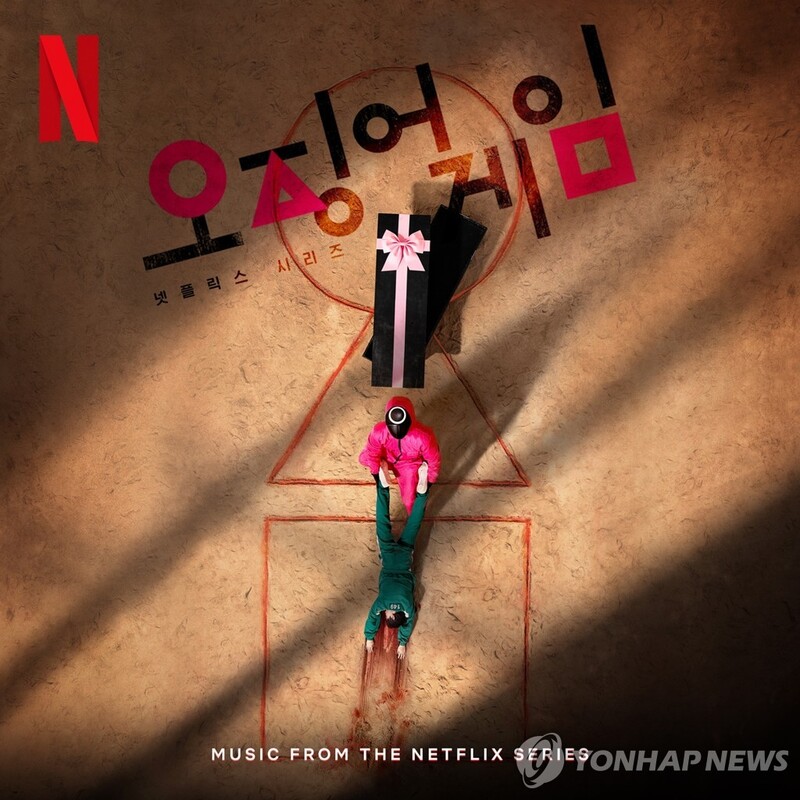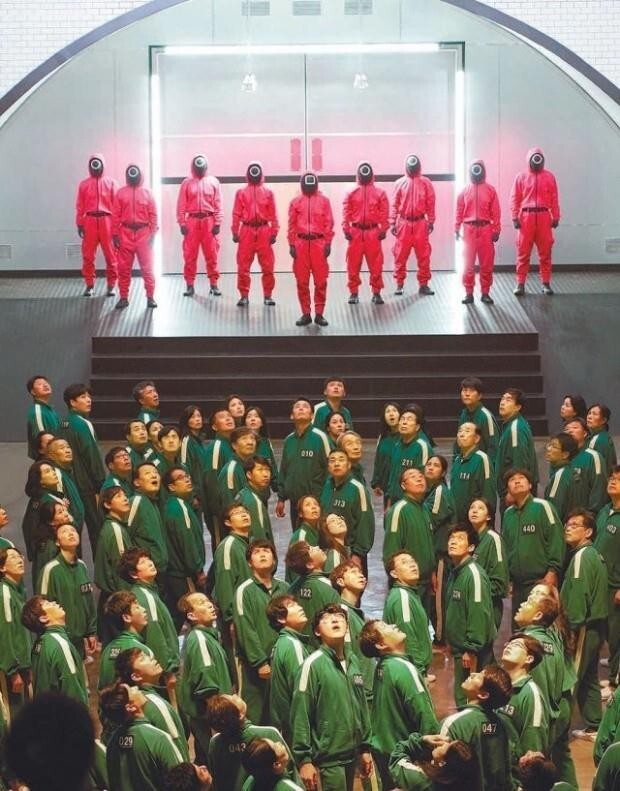 |
| ▲ This photo, provided by Netflix, shows Netflix original series "Squid Game." (PHOTO NOT FOR SALE) (Yonhap) |
 |
| ▲ This photos, provided by Netflix, show Netflix original series "Squid Game." (PHOTO NOT FOR SALE) (Yonhap) |
SEOUL, Oct. 7 (Yonhap) -- At the backstage of the global storm of Netflix Korean original series “Squid Game” stands the shadow of Korea’s economic worries.
NYT reported Thursday, that “Squid Game” depicting a deadly survival game for 45.6 billion won of prize money reflects the Koreans’ unease towards skyrocketing housing prices and scare jobs and its shadow has managed to reach to the global watchers as well.
The series’ brutal atmosphere, cynical plot and intriguing Korean games were all appealing for the world fans as well, but the NYT pointed out that its international sensation was from the stories of the main characters who are standing inches away from death in the unequal social structure.
The daily news pointed out the reality of wealth gaps worsening here and there around the world including developed countries such as America and Western Europe and the of becoming more difficult to lead a stable life as surging housing prices are running out of hands.
“The stories and the problems of the characters are extremely personalized but also reflect the problems and realities of Korean society,” said Hwang Dong-hyuk, the director of “Squid Game” on an email interview with NYT.
The daily news also introduced 2019 Oscar winning film “Parasite” by director Bong Joon-ho and “Burning” produced in 2018 by director Lee Chang-dong as productions that attracted global attention with their reflection of Korean society’s inequality and fading opportunities.
Korea now ranks No. 11 using the Gini coefficient, one measure of income inequality, among the members of the OECD (Organization for Economic Cooperation and Development), according to NYT.
A number of economists are warning an economical blow due to the country’s sharp increase of householding debt and soaring housing prices has become a politically hot issue. Since President Moon Jae-in was elected, housing prices in Seoul have risen over 50%, said NYT.
Korea is also facing a plunge of birth rate which is due to the youngsters’ thoughts that raising a child requires excessive amount of money.
“Known locally as the “dirt spoon” generation, many are obsessed with ways to get rich quickly, like with cyrptocurrencies and the lottery. South Korea has one of the largest markets for virtual currency in the world,” added NYT.
 |
| ▲ This photo, provided by Netflix, shows Netflix original series "Squid Game." (PHOTO NOT FOR SALE) (Yonhap) |
Meanwhile, Bloomberg has reported Thursday a rising expectation for expansion of Korea’s cultural exports thanks to “Squid Game.”
Indeed K-pop and K-dramas are gaining popularity overseas, there has not been many cases of forming non-Asian fandoms like BTS. But Bloomberg said that “Squid Game” has upgraded Korea’s soft power and is changing everything.
“The size of Korea’s content industry is small relative to the vast manufacturing sector, but has been growing steadily,” reported the media firm.
“Content exports totaled $10.8 billion last year, roughly one tenth of chips -- Korea’s main cash cow -- but already earning more than some other key export items such as household appliances and cosmetics.”
Especially, the total entertainment industry exports, adding up figures of publication, games, music, films and TV dramas, increased 6.3% last year, contrary to 5.4% decrease in overall shipments goods due to the spread of the COVID-19 infection, explained Bloomberg.
(END)
(C) Yonhap News Agency. All Rights Reserved




































